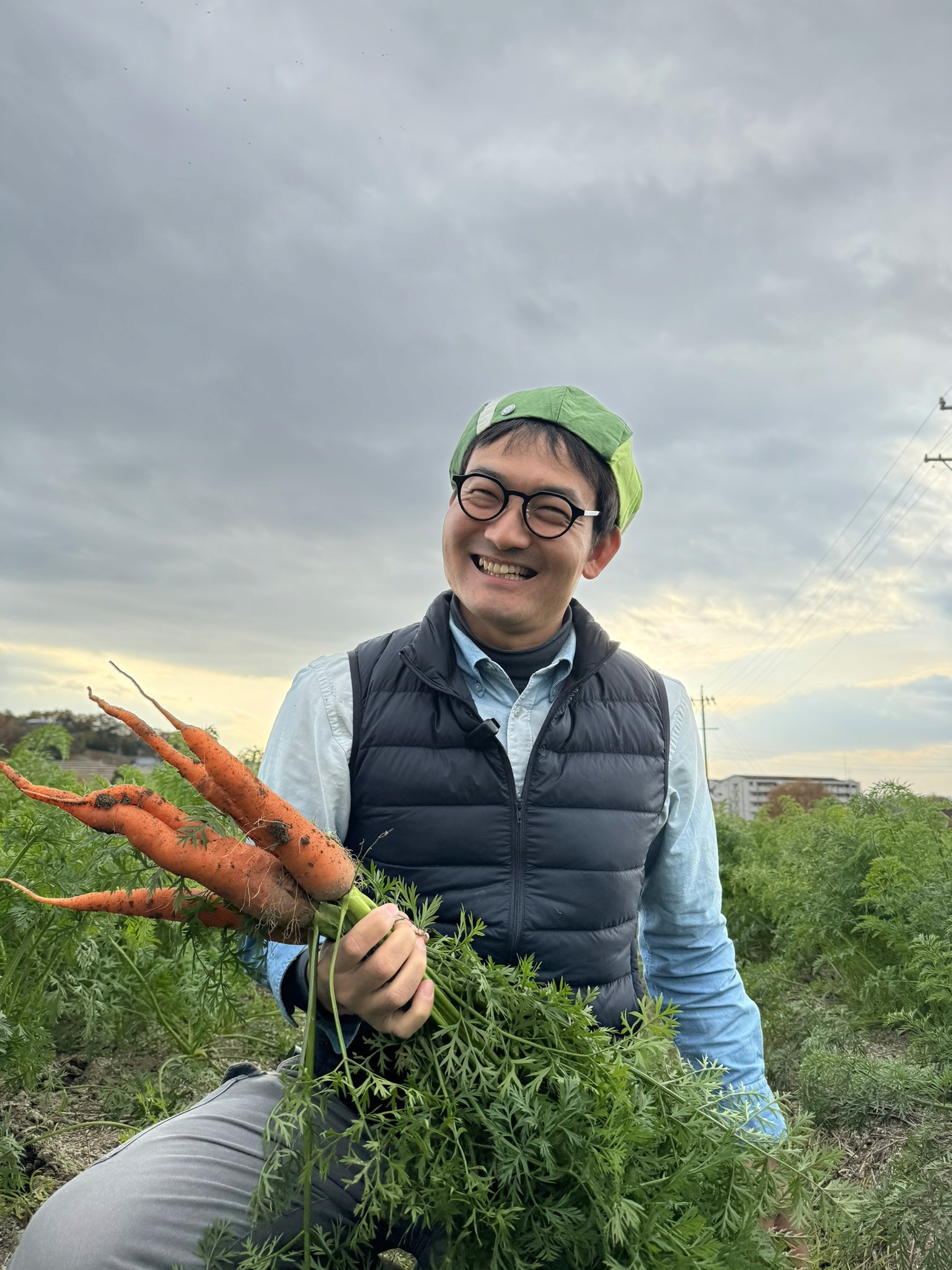
shizen saibai school

Plants use the sunlight to photosynthesize and produce sugar. We animals live by consuming that sugar. The sun doesn't forget to rise every morning, and it provides the earth with light and warmth. But we often take it for granted.
Perhaps, we ourselves are also like this. Aren't we ignoring the voices of our heart, of our body? Don't we sacrifice our sleep, and feed ourselves with junk food? The "sun" may be ourselves. To have a sun in our hearts, which might be a goal or self-esteem.

The soil is the fundamental to growing crops. Especially in "shizen saibai," which does not use agricultural chemicals or fertilizers, the soil determines what grows there. So listen to the voice of the soil and start with healthy soil. It is often said that soil microorganisms are important, but too many of one kind is not good. In the end, it's about diversity and balance.
Similarly in human society, it's no fun if there are many of one type of person, and it also deprives others of a place to be. We need a society which can embrace different types of people. Moreover, the environment has a huge impact on people, just like the soil does on vegetables.

We say the best fertilizer for vegetables is the sound of footsteps of the farmer. There is a kindergarten which does not have good soil in the garden, but their vegetables grow well thanks to the laughter of children playing every day.
People who do not handle tasks inside - who have little facial expressions or tend to become angry - often work with joy on the farm, in fields of "social farming" (farming that embraces people with special needs). Even with people who have difficulty communicating with words can somehow "communicate" without words. Soil might be a tool of nonverbal communication.
Last but not least. The highlight of shizen saibai is to let the crops grow based on their "personalities" and bring out their own taste. They often have a good balance of sweetness and umami, and without unpleasant taste.
It is a school where you can learn about "shizen saibai" from the fundamentals to application, based on topics such as soil and plants. We combine lectures and practicals. Shizen saibai using your full senses. Through your shizen saibai, let's create a world filled with deliciousness and smiles.
People who want to learn shizen saibai with their head, body and heart, from the basics to application. We especially welcome people who will be a (small or big, doesn't matter) leader of their community or field to share a world with deliciousness and smiles.
Every 1st Saturday
Starting on 2nd March, 2024
Until February 2025 (12 lessons in total)
※Schedule might change depending on the weather.
10:00 - 12:00 Lecture
13:00 - 15:00 Practicals
※It might change depending on the weather and curriculum.
※Please bring your own lunch.
Yamanota 336-20, Tero-cho, Toyota-city, Aichi-prefecture
At the field of Shizen Noufuku no Chikara
50,000 JPY(tax included)
※A 12m2 (3 x 4m) plot is for rent, for 6,000 JPY per year.
※Student discount price is 30,000 JPY.
※There might be additional expenses for materials for the student team field.
Please pay after confirmation of acceptance as a student.
Please pay before 29th March (Friday).
Cancellation policy activates after you agree to the acceptance.
~ 3/22(Fri)10% payment as handling charge, 90% refund
After 3/23(Sat)No refund
Clothes and shoes that can get dirty
Drink
Lunch
Other things you might need include a hat and clothes for change
March
★Introduction - Pre-opening ★
How do we grow crops that don't get eaten by insects?
April
★ Welcoming ceremony★ Do we have to make beds?
Sowing seeds and growing plantlets of summer vegetables
May
Is photosynthesis that important?
Planting summer vegetables, use and maintenance of grass cutter
June
The plants have too many leaves and no fruits…
Training summer vegetables
July
Why can vegetables grow without fertilizer?
Harvesting summer vegetables
August
How can we make tasty vegetables?
Sowing soy beans, harvesting summer vegetables
September
What vegetables suit your field?
Sowing seeds of autumn/winter vegetables
October
What kind of agricultural entrepreneurship suits you?
Sowing seeds of autumn/winter vegetables, saving seeds of summer vegetables
November
Is it okay if we plant a bit late?
Planting winter vegetables
December
How do we make farming schedule?
Harvesting winter vegetables, preparing for shipping
January
★Final Presentation★ Looking back
February
★Graduation ceremony★
※Throughout the year, students will grow seasonal vegetables. In practicals, you will learn how to use tools, sow seeds, harvest, in addition to planning the field and managing it as a team.
※You can come anytime to the field, also outside this school programme.
※The contents might change depending on the weather, growth of plants, etc.
※After each lecture, you can watch the lecture part (not practicals) online. Each archive is available for 12 months after publishing.









